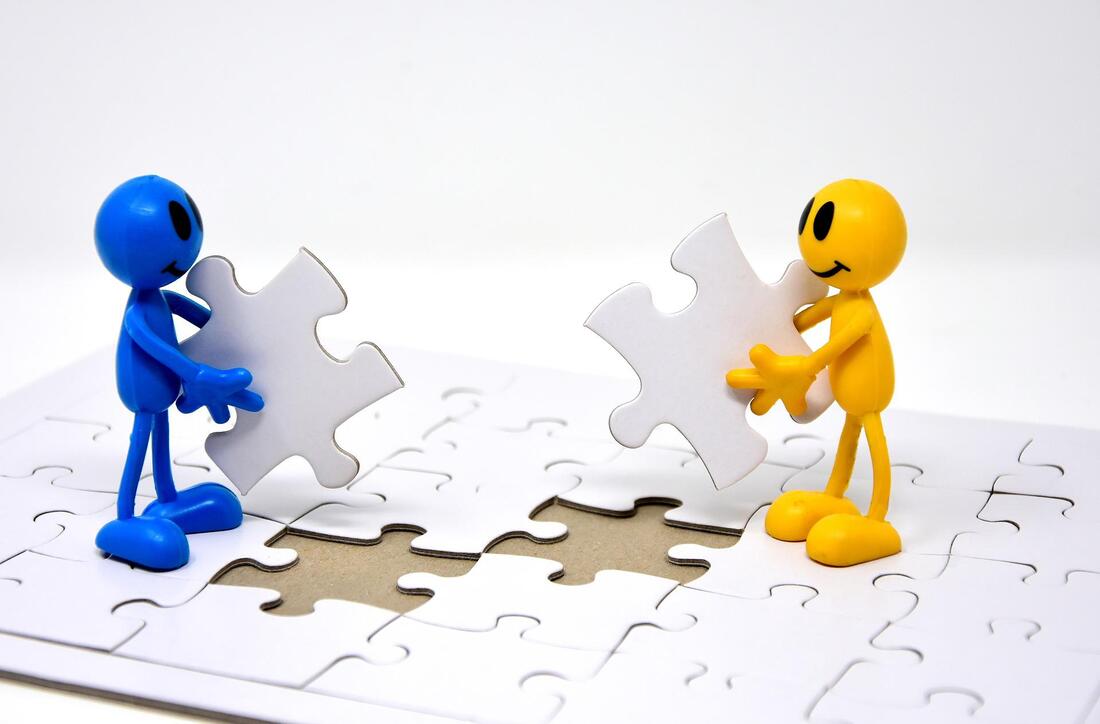|
Feature by Simran Bharadwaj  Image by vectorjuice on Freepik I hope to god they don’t mention anything about my weight. I think I’ve lost a couple pounds since the last time I went home. Will they notice? Maybe I’ll just suck it in and not eat that much at dinner. They won’t notice anything then…Right? As the holiday season approaches, we feel ourselves mentally preparing to see our families. Often the biggest concern for many is someone commenting on their weight. Women especially have felt the need to look thinner each time they go back to visit their families. In an effort to look thinner and not be commented on in a negative way, many have taken to sucking in their stomach. It feels like an easy way to avoid all the comments. However, sucking in your stomach too often or for too long can lead to health implications. Stomach gripping is when individuals repeatedly and for prolonged periods of time suck in their abdomen in an effort to appear as if they have a flatter stomach. It leads to training upper abdominal muscles to contract for long periods of time and in an unnatural manner. This can lead to back pain, breathing problems, and other health concerns which then leads to imbalances known as “hourglass syndrome.” Although an hourglass can be considered a preferred body shape, hourglass syndrome is nothing to envy. As a result of stomach gripping, the lower abdominal muscles are underused and become weak. The four muscles that become overused are the upper fibers of the rectus abdominis, internal obliques, transversus abdominis and the diaphragm. In an effort to look thinner, the rest of our body is put at risk of weakened muscles and health problems. If you notice back and neck problems, a horizontal line on your stomach, a weak pelvic floor, or other signs of stomach gripping, try to break the habit by practicing proper breathing techniques. This holiday season, let us try to practice body positivity or body neutrality and be comfortable in our skin potentially starting with therapy to help challenge thoughts and feelings tied to body image concerns. Cognitive behavioral therapy can help challenge thoughts regarding body image concerns and increase self-esteem. Developing a more realistic perception of your body through using kind and positive self-talk and cognitive restructuring can help avoid the preoccupation of negative body image thoughts. Maintaining a self care routine through journaling and avoiding compulsive behaviors will take practice and patience however will also help avoid physical ailments in the future. AuthorSimran Bharadwaj is a pre-professional licensed mental health therapist in New York City. You can contact Simran at [email protected] and read more blog posts at www.mwr.nyc.
0 Comments
Feature by Simran Bharadwaj Image by Freepik When we first started working from home, it was a necessity due to the COVID-19 pandemic. It was a transition that was difficult for everyone. Adjusting space in the house for multiple working individuals and children at virtual school. It was chaos. After two years it became a way of life. However, due to this major change in lifestyle there comes the challenge of managing working from home without burning out. Some of the main questions to ask yourself are: Do you find it difficult to concentrate? Have your sleep habits changed? Do you lack energy at home? If you realize that burnout is a significant concern, there may be changes you can make to your daily routine to balance out work stress and relaxation at home. 1. Creating a Home Office This space doesn’t necessarily have to be a whole room. Setting aside space in your apartment for office related activities, and nothing else, will help with separating the work and home environment. Rather than taking your laptop to the sofa or bed, stick to one space to do work, like you would if you had to go in person. 2. Mindfulness Mindfulness doesn’t always mean meditation. It can also mean paying attention to what your body needs. When we are focused on work we can forget to take breaks, eat food, drink water, or just get up and stretch. Working at home can lead to too many breaks or too few. Listening to what your body needs is important to avoid burnout. 3. Sticking to the Routine Waking up every morning, taking a shower, eating breakfast, essentially sticking to the routine that you would normally have if you were going into the office. Understandably these morning activities might be slightly altered considering a change in responsibilities with being at home, however sticking closely to a routine you are used to can help with managing time during the work day and not think about work after logging off. 4. Stay Active and Schedule Breaks Working from home can often lead us to extending our work hours due to distractions during the day or just knowing we can always log on later and finish up some extra work. Creating a calendar and sticking to a schedule can help with finishing tasks during the designated work day. However, if you find yourself working past the end of the work day anyways, I would suggest taking breaks throughout the day to stretch, walk around the apartment or even outside. Staying active will keep the blood flowing, which will help avoid staring at a screen for over 8 hours per day. Although many of us have been working from home for over two years now, the change hasn’t been easy. It can be difficult to stay focused all day while being at home. These tips are just a few that have helped me in the last couple years to prevent burnout and limit over working just because I can log on outside of the workplace. AuthorSimran Bharadwaj is a pre-professional licensed mental health therapist in New York City. You can contact Simran at [email protected] and read more blog posts at www.mwr.nyc.
Feature by Nikita Fernandes Via Pixabay Richard Schwartz created the Internal Family Systems (IFS) model to work with clients who held conflicting views of themselves. He explained these conflicts as having various parts within ourselves. As human beings, we are made up of different parts that serve specific functions. Internal Family Systems is a powerfully transformative, evidence-based model of psychotherapy. The mind is considered to be naturally made up of multiple sub-personalities or families within each individual’s mental system. These sub-personalities take on different roles, such as an inner critic or inner child, and consist of wounded parts and painful feelings like anger and shame.
By; Shira Keller-Ohana, MHC-LP  I used to wonder what makes one individual more resilient than another when faced with a painful situation or struggle. Linehan M. speaks on the concept of radical acceptance and its usefulness in painful situations. When one is faced with a painful or challenging situation, there are several ways in which he or she can perform: they can solve the problem, change how they feel about it, accept it, or stay miserable. However, Linehan talks about total and complete acceptance – radical acceptance – as a way to manage life’s challenges. When one accepts his or her situation, it doesn’t necessarily mean the person is glad about it. In actuality, radical acceptance may bring about sadness; but this is accompanied by an added feeling of centeredness. On the other hand, when we don’t radically accept our situation, the sadness may not be present. Instead, a deep sense of unbearable pain may take its place. There are times when reality is painful and, as a result, we try to push away the associated emotions and or fight against it through unhealthy coping mechanisms. Although this form of coping tends to bring about a temporary relief, in the long run, it intensifies the unwanted feelings. This happens when we bury the underlining emotions or situations and instead resort to obtaining temporary relief through unhealthy coping mechanisms. When one incorporates radical acceptance into their daily life, they are committing to accepting their reality as it is, and understanding what they can and cannot control. Furthermore, part of radical acceptance is being nonjudgmental and looking at just the facts of the situation, in addition to letting go and not fighting against the reality of the situation. While Many of us find it difficult to be present when dealing with uncomfortable and painful moments or emotions, that is all part of radical acceptance through which we can achieve a meaningful life. Taking a step towards self-betterment, and achieving a sense of centeredness happens when one completely and totally accept their reality, even if they think the reality is unbearable. Through psychotherapy, therapists and clients work together to bring about a radical acceptance of the past and present, in order to accomplish a more centered sense of self in any given situation. Reference Linehan, M. Cognitive-Behavioral Therapy of Borderline Personality Disorder. New York: The Guilford Press, 1993. AuthorShira Keller-Ohana, MHC-LP is a psychotherapist in New York City where she provides individual, couple, and family counseling. You can contact Shira at [email protected] read more of her blog posts at www.mwr.nyc/blog
The definition of self-esteem is one’s evaluation of their own self-worth. The ultimate question being, “Am I worthy?” Our culture has hijacked worthiness into being something that society decides upon. It is no longer, “I am worthy just because”, but it is “I am worthy because I earn money, I am a mother, I have a career, I own a car… “ Hence, if worthiness has been hijacked, so has self-esteem. Self-esteem has become the pursuit of all the things society decided are worthy actions, behaviors, milestones, and items. Pursuing self-worth became an outcomes based task, if you can prove it, if you succeeded at it, then you are worthy, otherwise, you are not worthy and your self-esteem plummets. Society defines worthiness and we have all bought into it. Your measuring stick of self-esteem is yours and societies idea and definition of who is worthy, what makes one worthy, and what we should consider valuable. With this understanding of self-esteem, we become hyper focused with only one area of improvement. We invest all our self-worth in specific domains such as being a good mother, being financially stable, or having the job of our dreams. Proving that we are worthy comes with a high price. Since worthiness is prescribed by the culture you live in, you are always dependent on others to notice and validate that you are doing well. Relying on others for validation and recognition creates a cycle of fear and anxiety. You become anxious about the other person’s opinion and you become fearful that they will reject you. Rejection means, you are not worthy! And your self-esteem is crushed. There are three things in life that satisfy us; competency, relatedness, and autonomy or what Freud said the ability to work, love, and play. Competency is our ability to work toward and master a task; relatedness is our ability to love and maintain relationships; autonomy is our ability to play and take risks. The pursuit of self-esteem interferes with these three life satisfying goals. Competency is our ability not only to learn a new task, but to learn from our past experiences. Self-esteem steals this opportunity from you because you are focused on the end goal and not on the process. Learning from your process allows you to recognize specific failures so that you can recreate your journey by implementing changes to improve the process. Competency is not only about completing the task, it is about mastering the task in the most efficient, productive, and satisfying way. Self-esteem interferes with our autonomy. Since self-esteem is contingent on societies rules and what society says is acceptable, you are stuck between embracing what you desire or satisfying others so that you can say you are worthy, by their standards (do you get this nonsense?). Essentially, self-esteem is confining and rigid, stifling your ability to play and take risks. For example, failure by society standards is terrible, only unworthy people fail. Therefore, you never try something new because you are afraid you will fail, if you fail then you are unworthy, and once again your self-esteem is hit. The cycle continues, you avoid risks because you do not want to ruffle the feathers of your delicate self-esteem. Finally, self-esteem hinders our capacity to love and experience relationships. We get lost in the goal of being in a committed relationship (society says: “you should have a boyfriend, you should have tons of friends.”) that we lose sight of living in the moment, allowing the ups-and-downs of relationships impact us. We become so preoccupied with our self that we completely overlook the experiences of other people in our life. When people challenge us in relationships we fail to appraise ourselves accurately because we are too busy protecting our self-esteem. We jump for a quick fix instead of introspecting and reflecting. Self-esteem cannot be the ultimate goal. Self-esteem will happen as a result of pursuing competency, relatedness, and autonomy. Use your internal voice to validate and motivate yourself. Let’s do away with self-esteem and focus on life-satisfaction, because you do not need to prove to yourself that you are worthy, “you are worthy just because.” AuthorSara Schapiro-Halberstam, LMHC, CASAC is a licensed mental health counselor in NYC, where she provides individual counseling and intimacy counseling. You can contact Sara at [email protected] and read more blog posts at www.mwr.nyc  Anxiety may cause many physical complications and jeopardize one’s physical health, even though the origin is due to a mental component. It’s interesting that a mental thing can cause a physical effect. Lets take for example the fight-or-flight response; your system creates the stress chemicals (adrenaline, norepinephrine, and cortisol) causing your heart to race and blood pressure to increase. This response is there to save us from danger, however in many cases when faced with mildly stressful situations we tend to interpret as threatening and instead of it helping us, it causes our brains to overreact to various situations as threatening. However, this continuous exaggerated brain activity can cause abrasions and deterioration to the heart, muscles and brain. There are some individuals that don’t necessarily internalize the daily anxiety and stresses. What makes one individual more prone to struggle with anxiety as apposed to another? Nature and nurture both play an important roll. On the one hand, learning how to react to stress may be a learned behavior, which was modeled by parents and or caregivers. On the other hand, a genetic predisposition to be reactive or calm is another side of the coin. Various activities to help reduce anxiety
Using all or some of the strategies mentioned above may help reduce stress and bring about an overall well-being, both mentally and physically. Gratitude is underrated. We talk about it, write about it, and post about it on social media, but do we practice it? As life spins and passes by we often forget to pause and be grateful. Studies have shown that moments of true gratitude benefits our psychological and physical health. The most effective way of creating new habits is by scheduling the new habit and repeating the habit daily. Here are some interventions that are helpful for creating new gratitude habits. Do these and begin to reap the benefits. Gratitude actions: Gratitude letter A gratitude letter should be written to someone in your life that you are grateful to. The letter should include all the reasons why you are grateful and how this person has impacted your life in a positive way. You can then then choose if you want to send the letter or keep it stored away. Even if you do not send the letter your will reap the benefits of gratitude. However, if you can stretch yourself beyond your comfort zone, the gratitude will have a larger impact on yourself and the person you sent it to. Daily diary A daily diary can be lengthy or short phrase. Your gratitude diary can be an entry of a paragraph or 3 short sentences addressing what or who you are grateful for. Gratitude reminder Using technology is always your best bet. Set a reminder in your phone with three short things that you are grateful for. Use your calendar to set the event to repeat every morning. Every morning when you wake up you'll be reminded about what you are grateful for. Speak out loud Yes, I know this might sound tacky, but speaking out loud is more effective than thinking. Once a day, announce to yourself in your car, in your room, in your office, what you appreciate about yourself and what you appreciate about someone else. Gratitude password A while back I read a blog post on Huffpost about a person who achieved his goals by changing his password every month related to a goal that he had. This can be done with gratitude as well. Create gratitude passwords. These subliminal reminders will keep you grateful throughout the day. Don't save your password or you will lose out on remembering and typing what you are grateful for. Reminder of relationship appreciation Reminding ourselves about our relationship appreciation and what we are grateful for in our partners is desperately overlooked. When you are deciding on your gratitude tasks, remember to include your appreciation and gratitude toward your partner and toward you and your partner as a unit. Maintaining relationship satisfaction and vitality is hard work, be grateful to you and your partner for what you have achieved. AuthorSara Schapiro-Halberstam, LMHC, CASAC is a licensed mental health counselor in NYC, where she provides individual counseling and intimacy counseling. You can contact Sara at [email protected] and read more blog posts at www.mwr.nyc  Originally Published by Jewishnews.com http://jewishnews.com/2016/01/25/happy-dieting/ Oy vey! The diet talks again? Are you that person who has tried various different diets and tried everyone’s suggestions of the “best” way to lose weight – to no avail? No worries, this article isn’t another run down about which super-foods to eat and which junk foods to avoid. The goal of this article is to make you aware of how your negative self-talk is getting in your way of happy, confident, and successful dieting. While we attempt to diet, avoid unhealthy foods, and make healthy choices our negative self-talk gets louder and louder. Albert Ellis calls this negative self-talk irrational beliefs and cognitive distortions. Our cognitive distortions leave us feeling deflated, frustrated, and upset. Of course we hate dieting. Not only do we need to avoid the foods we enjoy, we berate ourselves every step of the way. Thereby, we deflate our self-confidence and happiness while on our journey of weight loss. Learning about some of the cognitive distortions can help you hone in on what is getting in the way of your happy dieting and perhaps you can then experiment with some of the suggested interventions. Overgeneralization: You start your healthy eating or diet with the irrational belief that you failed so many times and there is absolutely no way you are going to succeed this time. The cognitive distortion of overgeneralization will very often stop you from even trying. Is telling yourself that you are guaranteed to fail helping you? Is it helping you reach your weight loss goal? How about rethinking this to something along the lines of; “I may have failed many times at dieting, but I do not have proof that I will fail this time. What I do know is that if I do not try I am most definitely not going to achieve the goal!” Fortune telling: Fortune telling is when we state that something is going to happen with out having proof that it will happen. Deciding that you are going to fail at your diet won’t get you very far. Telling yourself that you know yourself and you are for sure going to eat cake at the party, robs you from the opportunity of taking control over your choices. Just like the distortion of overgeneralizing, you want to ask yourself; “Am I gaining anything by convincing myself that I know for sure that I am going to fail at this diet?” It is important to think about our past experiences but that does not mean that we need to keep replaying the same ending of the story. Mental Filter: We all do the mental filter distortion from time to time. This is when we only focus on one aspect of an entire event. Let’s get real, while dieting you are guaranteed to cheat or slip-up. Only focusing on your cheat is going to create an attitude of “if I cheated I may as well go all out.” Stop and think about all the good foods you ate and do not trample on your goals because of one cheat. All-or-nothing: If you cannot do it perfectly you won’t do it at all. Unfortunately for you, we are fallible human beings who make mistakes and do not always follow the rules. Expecting your diet and healthy-eating to be perfect, is irrational. Allow yourself to make mistakes. Telling yourself that you can either diet perfectly or not at all gets in your way of achieving your goal. Magnification or Minimization: You blow your cheating out of proportion by insisting that one bad food item will completely ruin your possibility of losing weight and visa versa, you minimize your bad choices by saying, “one cookie is not big deal.” The key here is to find the balance between staying on-course, forgiving yourself when you slip-up, and continuing to pursue ahead towards your weight loss goal. Emotional reasoning: Are you the person who says, “I feel like a failure therefore I am a failure?” Emotional reasoning is when we use our emotions as the truth. Just because we feel a specific emotion, does not mean we are that emotion. When you are feeling bad about yourself does it mean that you are a bad person? Feeling helpless does not mean that you are helpless. Try to make a list that you can use as proof that you are not helpless in the world of making healthy choices. Your list can include all the healthy food choices you did make in the past week, all the unhealthy foods you have avoided, or your total exercise hours. If you have nothing to put on your list, then maybe you are not on a diet at all and it is time to go back to the drawing board. Should Statements: Should statement are everywhere! They rule our lives. Much of what we do is grounded in “I am doing this because I should.” You want to be aware of your should statements in both negative and positive aspects. For example, “I should diet” appears to be an attempt to push you toward a positive behavior and “dieting should be easy” appears to be an attempt to push you toward a negative behavior. Yet, in both cases the “should” is an irrational belief. Rethink it by asking yourself; “Do I have to diet? Well, no I do not have to – but I would like/prefer to.” Changing your should statements to preferential statements will give you a sense of agency. Now, you are dieting by choice and not by force. In other areas that the should statement creeps up is while you are dieting. “This should be easy, this should take faster, I should not have to work this hard.” Do these statements sound familiar? Try to challenge your should statements with questions such as; “Whoever said a diet is easy?” or “Whoever said a diet will take fast. I would love if it took faster, or it was easier, but it does not have to be?” Must statements: Let’s preface this with a cliché: “You don’t must have it.” Must statements are dramatic. They convince us that we just cannot live without certain foods. Since must statements are full of drama, kill them right back with drama. “Will you die if you do not have this slice of pizza? Is it really that awful?” Labeling: Instead of saying “oops, I made a mistake by having ice cream” you tell yourself that you are failure, an idiot, a fool – because you cheated on your diet. The problem with labeling is that if you give yourself a label you need to act on it. What do overeaters do? They overeat. Labeling yourself causes you to behave according to the label. Calling yourself fat, overweight, an overeater, or any other negative label you attach to yourself, will simply reinforce the cycle that you are trying to avoid. Highlight the negative choice or behavior without labeling yourself, “I overate at this dinner, it does not mean I am an overeater.” Blaming: You blame other people for your poor eating habits. “I only eat white bread because my husband buys it. If he would not buy the white bread, I would not eat it.” Ask yourself if blaming others for you eating habits will get you to your goal. You get credit for noticing the source of your challenge but instead spend your time thinking of creative ways to circumvent the bad eating habits of the people in your life. The next time you start a diet or are trying to move toward healthier eating habits be aware of your negative self-talk and get ready to challenge them! __________________________________________________________ Sara Schapiro-Halberstam, M.S., CASAC is a psychotherapist in Midtown Wellness & Resilience where she practices individual therapy, couples counseling, and sex counseling. You can contact Sara at [email protected] and read more of her articles on www.mwr.nyc |
Authors
Archives
February 2023
Categories
All
|




 RSS Feed
RSS Feed